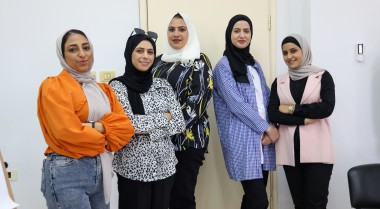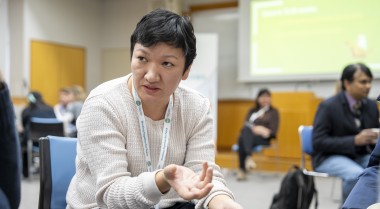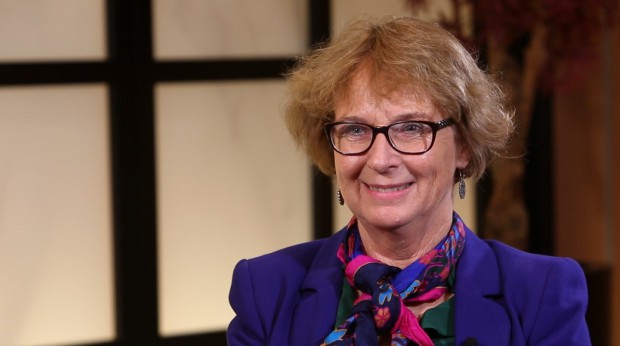
Sustaining women's participation in peace efforts amidst escalating violence: The role of institutional support
Conflicts are not static; they change quickly and unexpectedly due to a combination of different factors interacting with one another. This understanding is crucial for anyone involved in conflict resolution or peacebuilding efforts because it shows the necessity to be responsive and adaptable to these ever-changing dynamics.
Since 2021, we have partnered with the Rapid Response Window of the United Nations Women's Peace and Humanitarian Fund (WPHF), which quickly mobilises critical financing for local organisations to advance further women's meaningful participation in formal peace processes and the implementation of peace agreements. In this partnership, GPPAC acts as an intermediary, supporting local civil society organisations that receive funding by offering technical guidance and support.
The question of flexibility was tested in October 2023 in the context of a project that was about to start in the Occupied Palestinian Territories (OPT) with the support of GPPAC. This project, spearheaded by a women-led consortium of three civil society organisations from East Jerusalem, West Bank, and Gaza, intended to advance women's rights, foster their active involvement in peace processes, and enhance their role in decision-making. More importantly, it was building on a former project led by the Palestinian Centre for Peace and Democracy that successfully empowered young women to participate in peace negotiations and reconciliation talks.
However, in the wake of the October 7 attacks and the war on Gaza, this project was postponed due to security risks and the escalation of violence. While the need to pause and reassess the project in a suddenly volatile situation can make sense from a donor's perspective, the need for peacebuilding action becomes even more urgent. So, how to reconcile this seemingly contradictory imperative?
This was when the partnership between GPPAC and the WPHF's Rapid Response Window made a crucial difference. Following the onset of the conflict between Israel and Hamas, the needs of the consortium partners changed dramatically overnight. While the initial project could not go forward as planned, GPPAC and WPHF found a way to ensure that the immediate needs of the consortium members were met. The decision to shift from project funding to institutional support was made quickly, filling funding gaps created by other donors' decision to freeze funding suddenly. This allowed them to pursue their crucial work with local, community-based organisations, ensuring peacebuilding initiatives continued despite conflict. For instance, they switched to online platforms to stay connected and provide training, particularly on promoting gender equality and nonviolence and enhancing media literacy.
"Following the eruption of violence in the OPT, the United Nations Women's Peace and Humanitarian Fund (WPHF) took actions to contribute to the safety of all partners through the reallocation of programmatic grants to institutional support in the face of the rapidly evolving crisis. This contributed to CSOs' to maintain their staff and operational capacity enabling them to resume their actions when feasible. Similar measures were implemented during the Covid-19 pandemic to support local women's rights organisations to sustain their critical operations and adapt to the evolving challenges on the front lines." - WPHF
From this experience, three significant lessons emerged:
- Firstly, the role of GPPAC as an intermediary was vital, making the case for smaller organisations as they often lack the bandwidth to prioritise engaging with donors when a crisis hits with force. This builds on GPPAC's continuous endeavours to rethink how we understand programming and partnership, emphasising relationship building. These efforts ensure effective peacebuilding initiatives are preserved amidst adversity.
"GPPAC's quick and imaginative reframing of the WPHF Rapid Response Window project funding to institutional support has not only helped MEND to keep going in this time of horror and crisis across the OPT. It is actually enabling us to work with the vision of a better future and to reinvigorate our work on active nonviolence and participatory democracy throughout the West Bank and East Jerusalem." - Consortium partner MEND
- Secondly, the WPHF truly showcased flexibility and adaptability, standing out among other donors as it actively listened to the needs of people on the ground.
"The institutional support was also a result of the longstanding and trusted partnership between WPHF and GPPAC via the Rapid Response Window for three years. GPPAC's expertise and pivotal role in collecting vital information from CSO partners underscored the need for swift action, an illustration of a strong and equal partnership between the United Nations and Civil Society." - WPHF
- Lastly, as a GPPAC member reminded us in 2020 when Russia's war against Ukraine broke out, "Even though missiles fire on our cities every day and people flee, opportunities to build peace still exist". Peacebuilding should take place before, during, and after war.
Ultimately, the experience in Occupied Palestine highlights the importance of institutional funding in sustaining peacebuilding efforts in the face of an unprecedented humanitarian crisis. As crises evolve, the ability to adapt becomes essential, ensuring that the pursuit of peace perseveres despite adversity.


